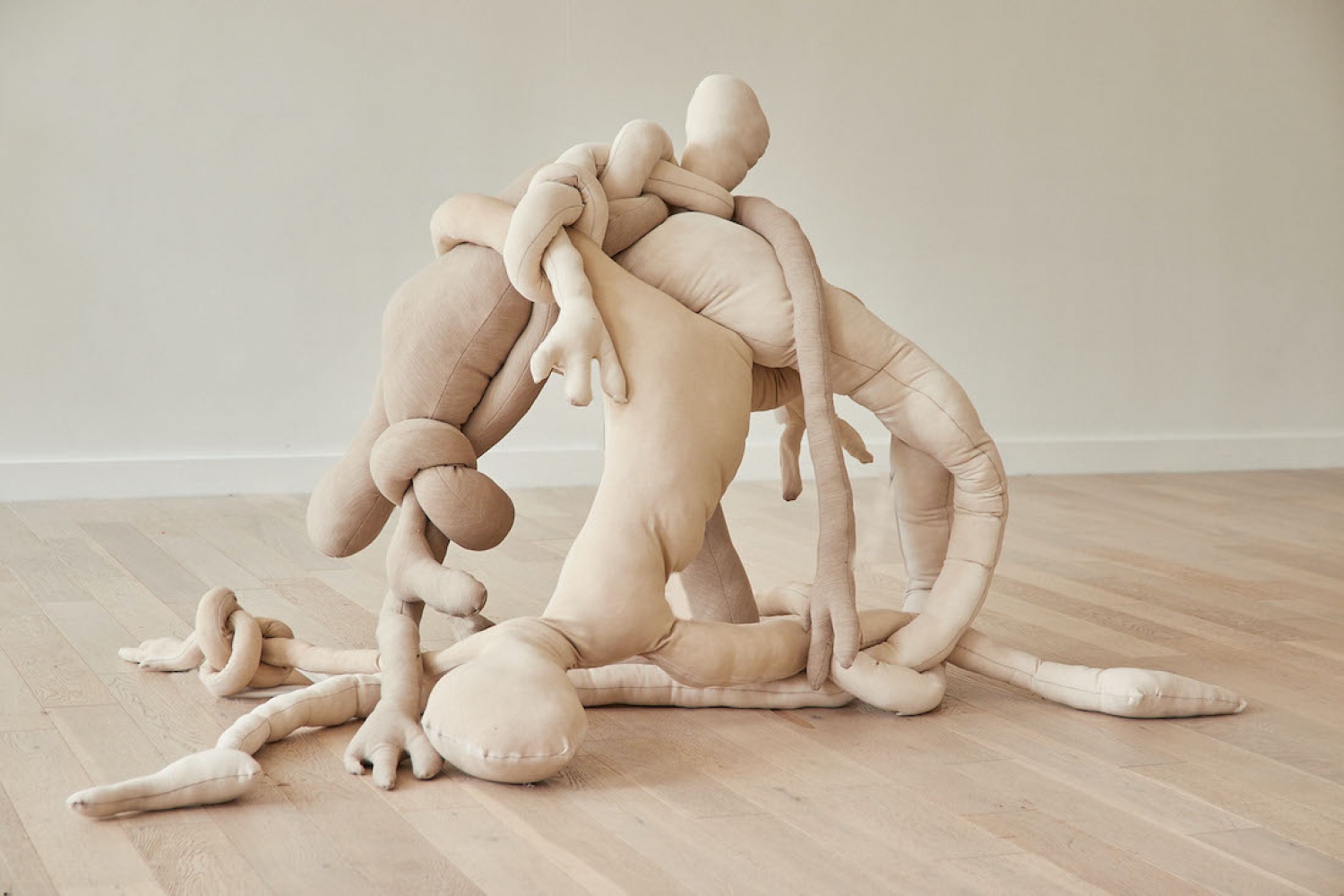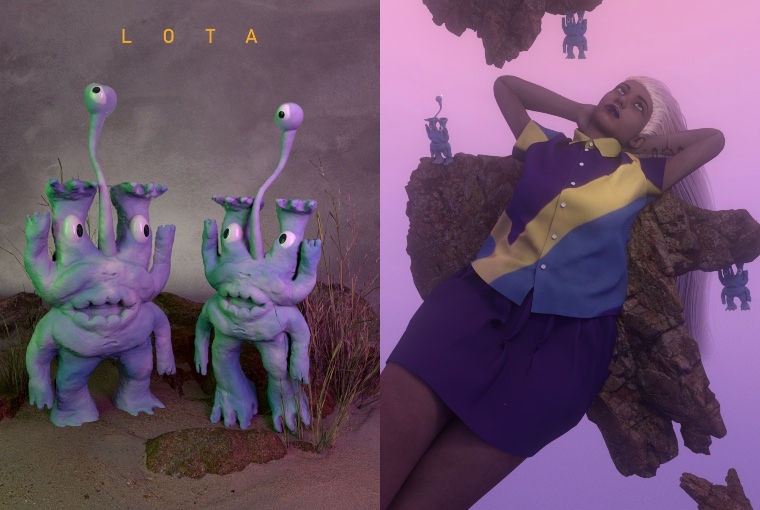
Family Portrait

Family Portrait
Textile artist, knitwear designer and founder of the independent studio LOTA, Shradha Kochhar grew up admiring the arts but was not versed with the technical know-how. However, she is also someone who developed an in-depth understanding of how labour intensive the field of textiles is as a child. Her early years included following her father around to cotton farms, spinning mills, screen-printing vendors and watching her grandmother knit while she watched the television.
Talking about her romance with knitwear, Shradha tells me, ‘I was sensitised to its labour and how well-rounded it was as a system growing up. I heard stories of how my grandmother lifted her family out of financial hardships by knittIng sweaters and selling them. Her generation knew how to make clothes from seed to stitch, which is so empowering. I learnt how to spin fibre to yarn and knitting, as I spent a lot of time with my grandmothers — paternal and maternal. As a knitwear designer, I felt a complete disconnect when I would knit my own fabric without knowing the origin of the yarn. Soon after, I became really interested in finding the source of materials I was interacting with. I started collecting fibre from farms in the US and India, and building a little seed library to expand my understanding of materials and their characteristics, origin and history.’
It was about three years ago when the designer started spinning her own yarn on a peti charkha — a modular spinning wheel that eventually folds into a small briefcase. The process proved to be especially intimate and cathartic. As she grew closer to the product she was creating, her awareness of the effort that goes into working with textiles grew as well. Hence, a vital aspect of Shradha’s endeavour involves public display of the process of creation. She has taken it upon herself to spin fabric in public spaces while in Delhi or New York, in an attempt to reduce the disconnect people usually have with the garments they wear.
Shradha’s recent exhibit, titled Of Memory and Matter, also presented at Tory Burch and Urban Zen by Donna Karan in New York, is an amalgamation of her work over the past two years. The body of work is her attempt to write ‘an autobiographical fictional essay where I try to blur time through objects made from referencing intergenerational narratives, in an attempt to rewrite history.’ Her main intent was for these objects to be tangible and occupy space, unlike the oral narratives passed on from generation, which tend to get lost over time. The objects include family portraits, alternate tools and future heirlooms. A curious conversation between art and fashion, the exhibit explores khadi — the handspun textile using Kala cotton. Khadi has a rich historical context. It signifies the Indian freedom struggle as Gandhi announced the boycott of British textiles and promoted the homegrown khadi instead, in a bid to promote self-reliance in the state. ‘I’m drawing from history and referencing a movement that existed in the past, to create something modern,’ adds Shradha.
When it comes to her design philosophy, she is very clear with what her work stands for. She explains, ‘I think a lot about what binds us all as people from all over the world, time and space. I believe it is the soil that nurtures, the hand that gets passed on each generation and the air we continue to collectively breathe. I make textiles as I reflect on the ways in which history and memory, invisibility and the effects of politics, space, symbolism, stereotypes and gazes interact.’ She views the environment, the body and the mundane objects that surround us, emblematic of change and self-reliance. The very act of creation she indulges in, holds connotations of decolonization. Shradha’s label, LOTA, also stands for the kind of change she wishes to see in the industry. An attempt to break through the mainstream model of fashion in order to create a parallel economy, the label focuses on waste-textile the industry produces. Established with the intent of normalising garments made from second-hand resources, the label has grown to produce knits made from post-consumer textile waste.

Shradha strongly believes in how empowering fashion can be and how the future is not only self-reliant but also comforting. On a parting note, she animatedly talks about her upcoming projects. She has some exciting collaborations coming up and two group shows for the New York Textile Month.
Text Unnati Saini
Date 24-08-2021
Photography Credits (Of Matter and Memory) Sambit Biswas